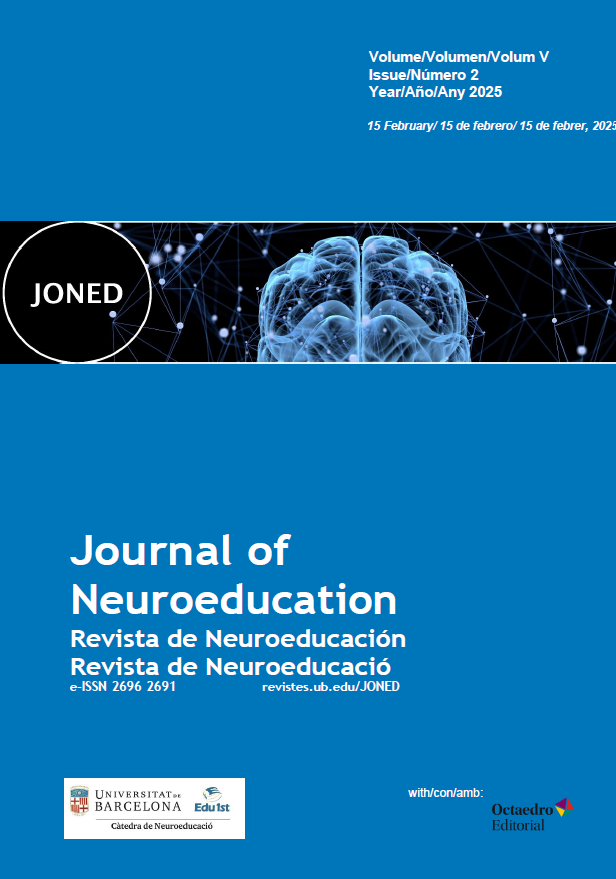La neuroeducació transformant l’aula: una mirada a l’aprenentatge a l’Escola Octavio Paz
DOI:
https://doi.org/10.1344/joned.v5i2.47564Keywords:
learning, neuroscience, neuroeducation, pedagogical transformation, learning styles, brain plasticity and metacognitionAbstract
The growing concern about improving academic outcomes and how we can help children to learn in a meaningful way leads us to ask and question how learning works and why we learn the way we learn. This is why neuroscience can give us answers to all these questions that both teachers and families ask ourselves continuously, determining which factors and which variables need to be taken into account to facilitate and personalize children's learning.
At Escola Octavio Paz, the educational project was transformed years ago in order to adapt it to the real needs of children, families and the society of the 21st century. In this process of changing our perspective and methodology, neuroscience has been very present at all times, with the help of the Chair of Neuroeducation at the University of Barcelona, the teaching team has felt accompanied in this research on how to teach and to know how we learn.
Downloads
Downloads
Published
Issue
Section
License
Copyright (c) 2025 Alicia Godes, Estefanía Mas, Ana Vicálvaro

This work is licensed under a Creative Commons Attribution-NonCommercial 4.0 International License.
The authors who publish in this journal agree to the following terms:
a. Authors retain copyright and grant the journal the right of first publication
b. Texts will be published under a Creative Commons Attribution Non Commercial License that allows others to share the work, provided they include an acknowledgement of the work’s authorship, its initial publication in this journal and the terms of the license, and not for commercial use.



